Student Spotlight: Austin Peay student explores the chemistry in her artwork
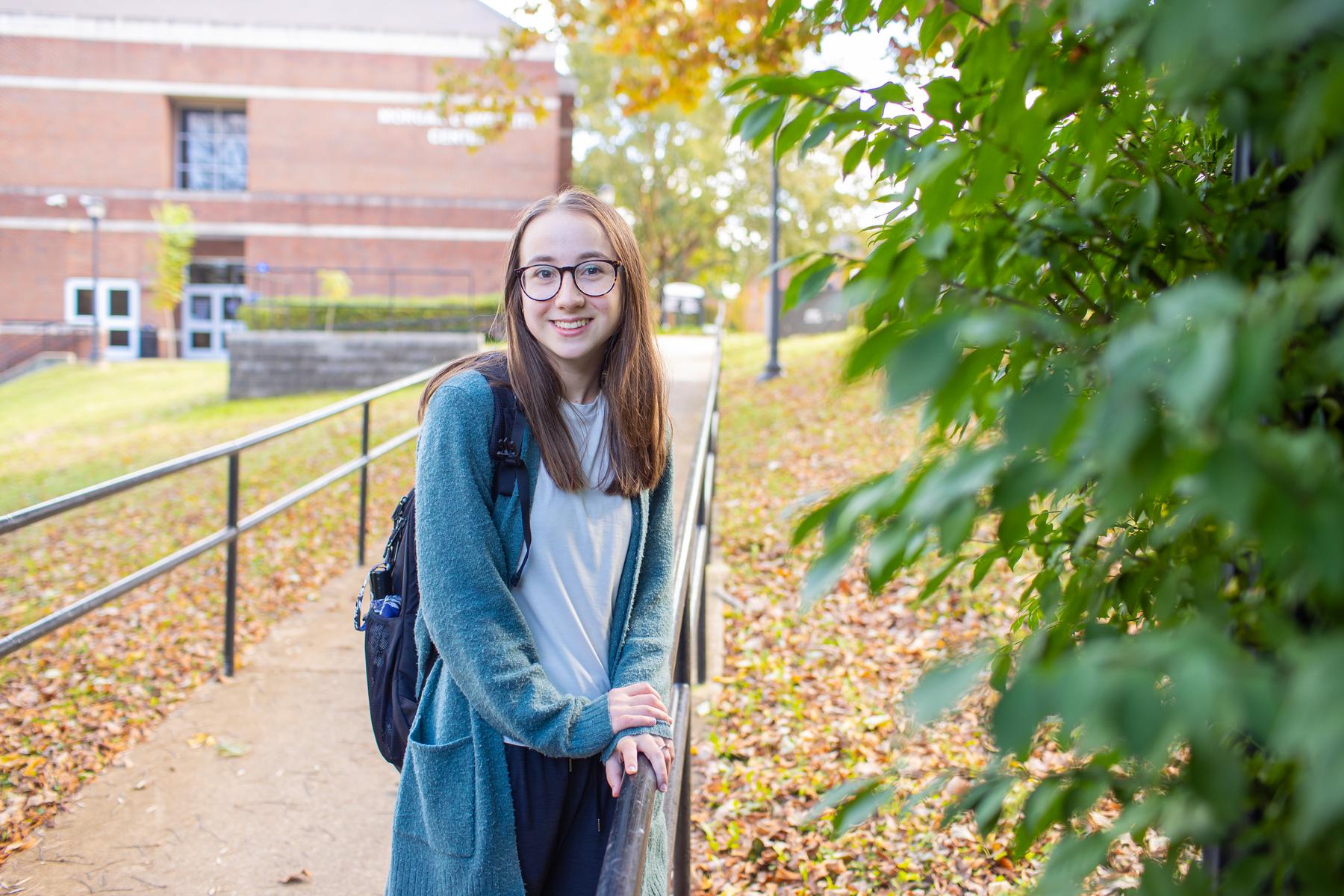
(Posted on Monday, Dec. 19, 2022)
Last spring, as Emelia Beck finished her first year at Austin Peay State University studying biochemistry, she felt a draw to another discipline – animation and visual effects.
“My plan was pre-med – I wanted to be a doctor – but I realized that put me in a box that I didn’t want to be in,” she said during a warm November morning in a Clarksville coffee shop. “So, I thought about what my ‘Plan Bs’ were.
“I took a drawing class in spring because I was an art minor, and I really liked it,” she added. “I thought, ‘I’m pretty good at this.’ That got the gears turning, thinking about switching majors.”
This fall, Beck added more art classes to her chemistry classes, and she realized that she “just wanted to dive in.” And she changed from biochemistry to animation.
Despite that change, she hasn’t left her other interests behind. She’s continuing her chemistry research on the synthesis and analysis of indigo dye – a project she started last year in Austin Peay’s STEM Scholars program with Dr. Anuradha Pathiranage.
Immediately upon Beck’s acceptance to Austin Peay, Pathiranage – an assistant professor in the Department of Chemistry – became her adviser and, ultimately, her research mentor.
“I’m so thankful for her,” Beck said. “We do research together, but it also branched out to tutoring her daughter in Spanish. It’s more of a connection, just as humans, not as much professor-to-student. I’m thankful for the opportunity she’s given to me.”
The science of art
Pathiranage has supported Beck’s decision to switch to art.
“As I continued with my art classes, showing her my work and how chemistry and art can be incorporated together, she’s really excited about it,” Beck said.
That chemistry-art harmony is the centerpiece of Beck’s fabric dye synthesis research, and she displayed her work during a tie-dying workshop with the STEM Scholars APSU 1000 class in October during National Chemistry Week.
“I started indigo research last year, and we were doing indigo dyeing in one of my art classes,” she said. “I was researching this in chemistry and doing it in art class. That was interesting to see that I knew the chemistry behind the process and how to do it artistically as well.”
The demo for the STEM Scholars class took Beck’s research and magnified it by using indigo to tie-dye 40 T-shirts.
And in March, Beck and Pathiranage will travel to Indianapolis, Indiana, to present the research at the American Chemical Society’s spring 2023 conference. The research also explores natural and environmentally friendly indigo dye reduction methods.
“Indigo is different than most dyes because it’s not soluble in water, so you have to use a chemical to reduce it, which makes it soluble in water,” Beck said. “But the reducing agent that’s used commercially and industrially is very bad for the environment. Something that I learned is trying to find a more environmentally friendly reducing agent that is cost-effective as well.”
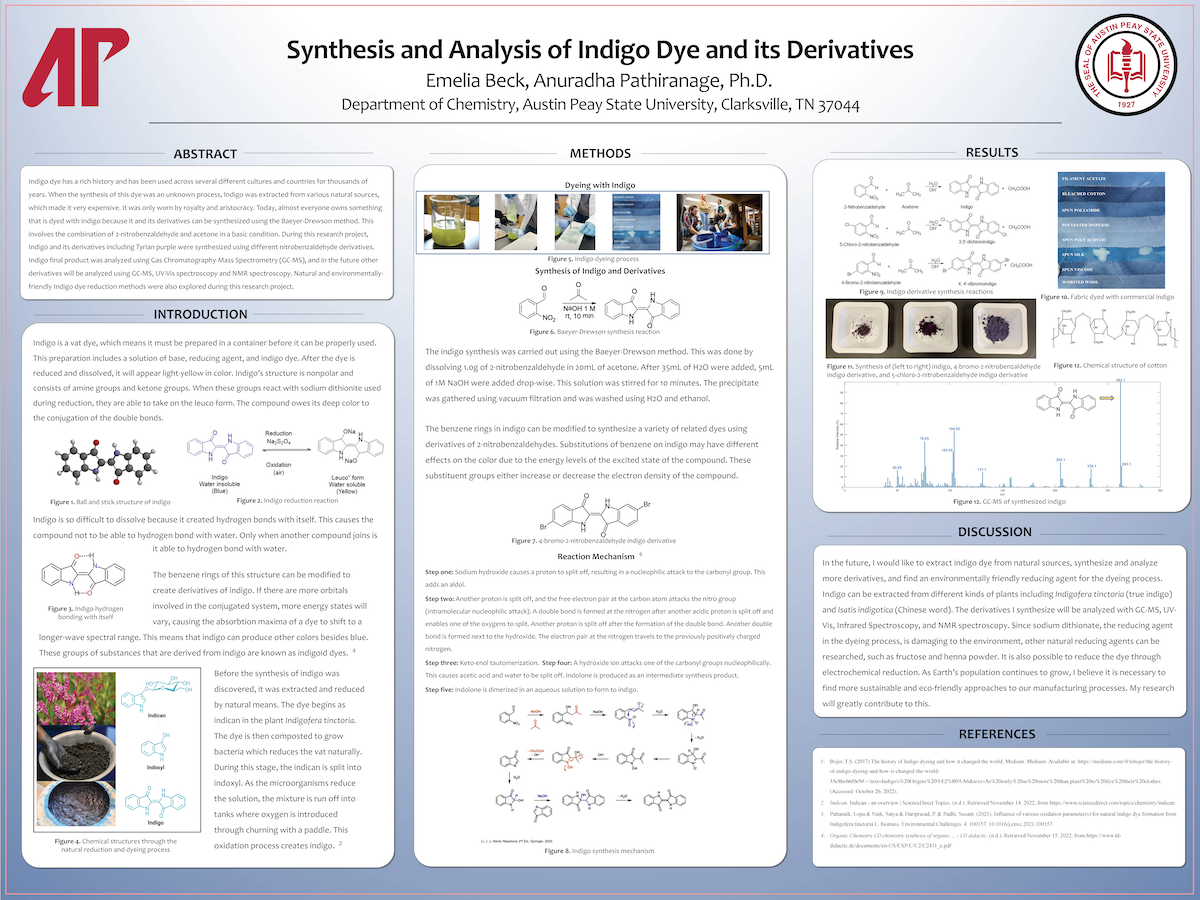
News Feed
View All News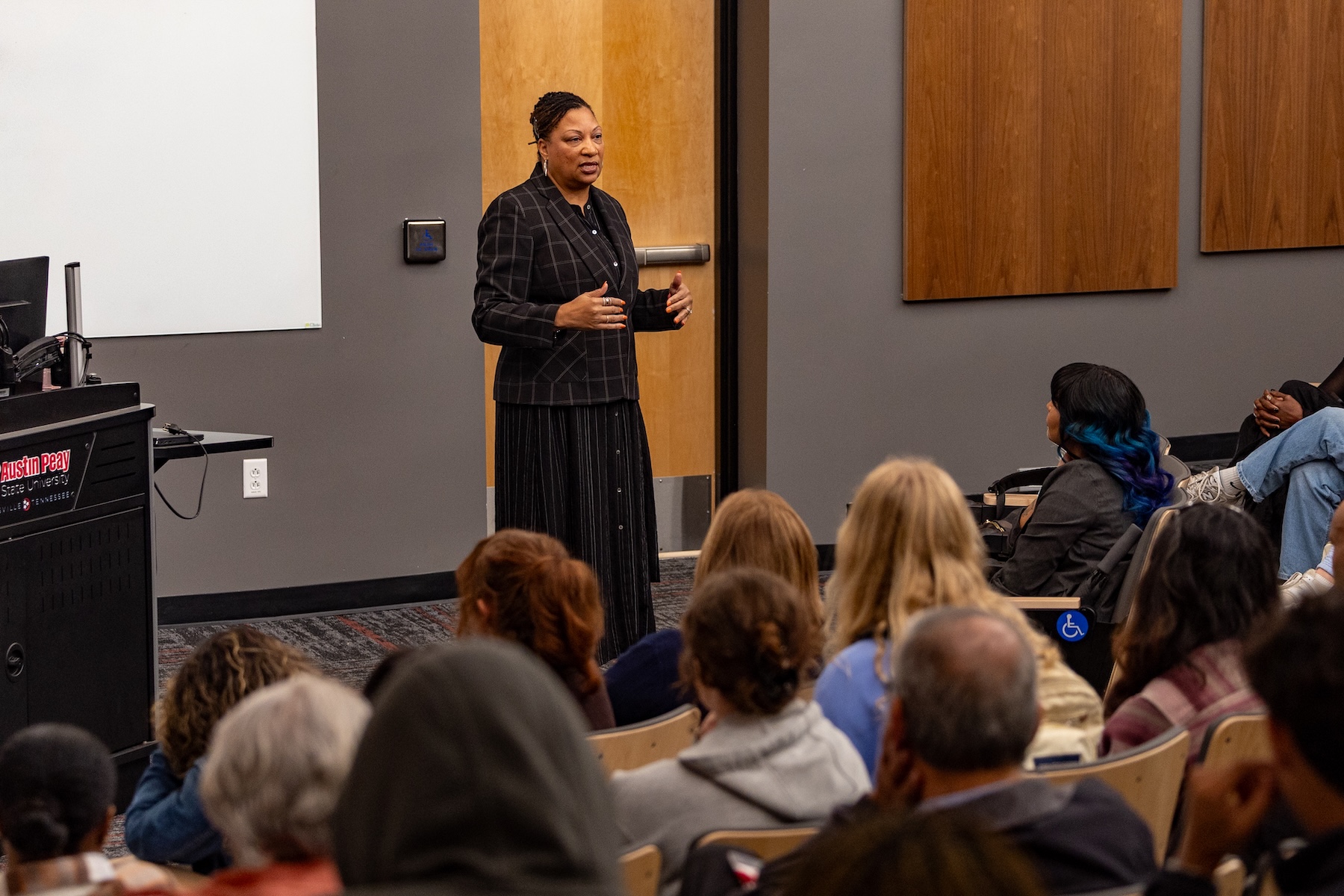
David Hogan of Ribbon Communications and David "Buck" Dellinger of the Clarksville-Montgomery County Economic Development Council (EDC) will share their real-world perspectives on leadership, innovation, and career development during this semester's speaker series.
Read More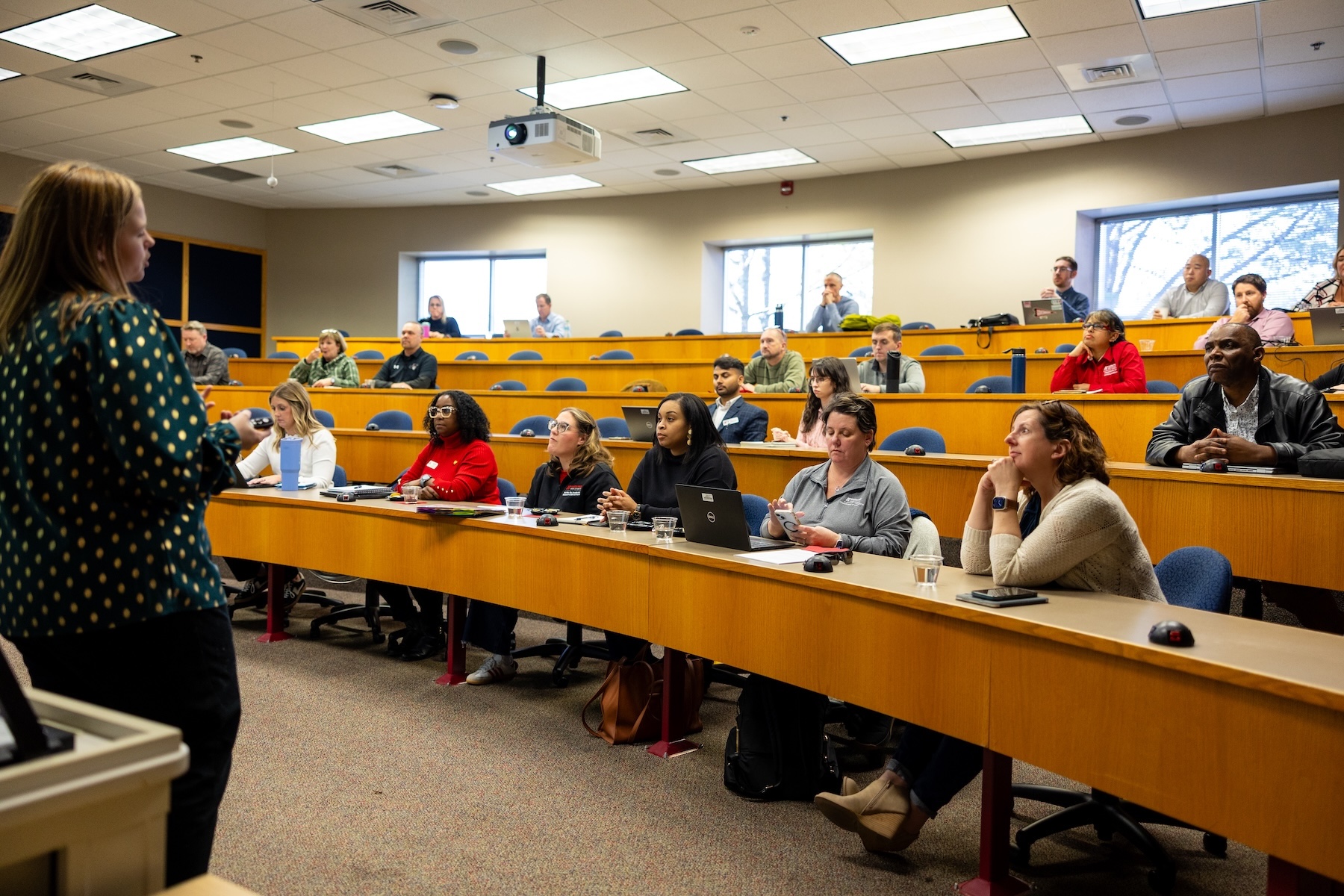
Title III grant funding recently allowed 16 faculty members from across campus to participate in the Career Readiness Academy, an extended workshop series focused on labor market tools, curriculum development, and National Association of Colleges and Employers (NACE) competencies.
Read More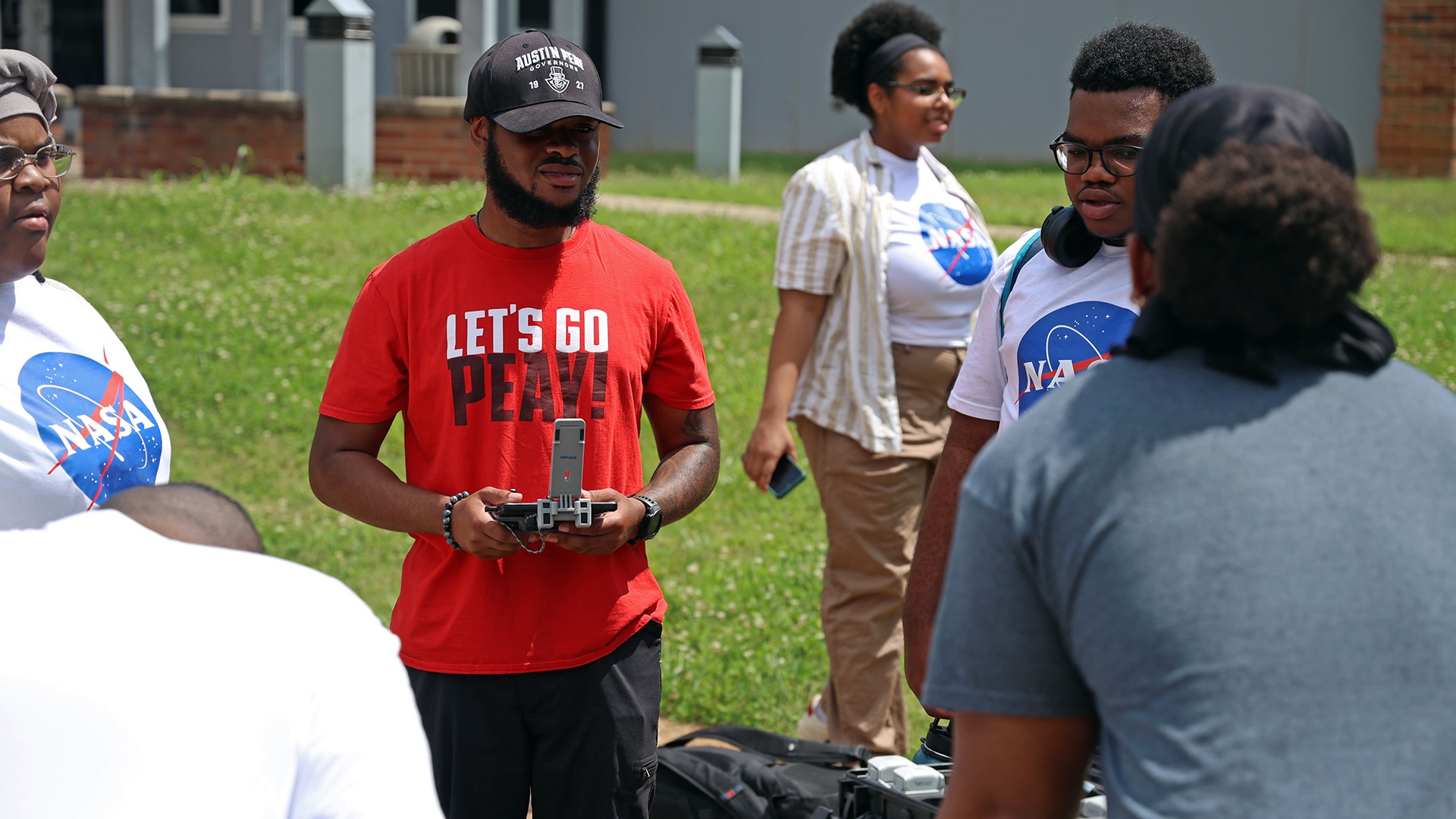
The collaborative research project will explore how custom-designed drones can support communities during natural disasters and enhance healthcare delivery, particularly in areas that are difficult to access through traditional means.
Read More